|
There are things I want to say and share but I can't. Not yet. But because I'm antsy, I want to share something so I'm sharing some of my favorite words and quotes by others via my pinterest board. Words have an incredible power to soothe, hurt, heal, inspire, build up, tear down, linger, and last. That's why how we use them, where, and when matters so much.
Writing has always been something that has come easily to me. I whip off genuine, personalized report cards in a day. I can write a blog post in under ten minutes. I wrote my first novel (without edits) in four weeks. When the story is there for me, it's not difficult to get it down on paper. That's not bragging-- it's just the way I've always written. Having said that, in the past, my writing has always been for me so it hasn't mattered that there were glitches in the plot or character inconsistencies. Now that I'm actively trying to make my stories stand out above others, to make my writing catch the eye of an agent, what was once good has to be spectacular. Good is not good enough and speed doesn't count for anything.
It's difficult to separate yourself from your writing long enough to see the faults and weaknesses. I'm okay with having them and I'm okay with fixing them but the thing that is hard for me is narrowing in on where they are. This is why it's so important to utilize the feedback that anyone, particularly anyone in the writing/publishing/editing/agenting industry, has to offer. The people that I have "met" in the last year through social media and because of putting myself out there as a writer, have been incredibly supportive and kind and positive. I feel as close to some of them as I do to some of the friends that live down the road from me. I believe you can establish strong bonds and friendships via social media and email. It's new age pen pals. The difference, however, is the personal element is removed so they can, perhaps, offer that extra bit of hard criticism you need. Why? Because even though they like all your statuses on Facebook and retweet your tweets, even though you chat more frequently with them than others who live a few minutes away, they haven't seen you cry when you get a rejection letter or laugh like an idiot when you get amazing feedback. They know you but they don't KNOW you. This can be a very good thing for a writer as it allows them to be a stronger critic. There's an element of detachment that comes with online friendship that can only be changed by actually physically meeting. And I hope that one day I get to meet some of the amazing people that have befriended me. In fact, I already have met some of them and it's a pretty awesome feeling when they're just as cool as you thought they'd be. However, until I meet the others, I can let that buffer level of detachment work in my favor. They can be just a little harsher than my best friend who has to put up with me being moody when she tells me what I know is the truth. If they don't want to deal with my irritation over pointing out something that needs fixing, they can move away from the computer. Trust me, my best friend can't. I will show up at her house cause I'm fifty shades of needy and clingy like that. So the point is, I'm going to spend some time really letting the feedback wash over me, knowing that these people who are offering me pointers and suggestions, for some reason, want me to succeed. I've said it before but it bears repeating: writers are the most supportive, encouraging group of competitors you could align yourself with. I guess it's because there can never be too many books. Or maybe it's because the same story can be told a million different and compelling ways. Whatever the reason, the writer's I've met want every bit as badly as I do to succeed. But they fall over themselves with praise, feedback, encouragement, and their valuable time to make sure I'm right there with them. For the next little bit, I will be drawing on them to help me make my work the strongest it can be. I will also be checking out as many articles, blogs, posts,and websites as I can. Here's what I'm starting with this week: http://warriorwriters.wordpress.com/2013/04/29/ways-to-create-multi-dimensional-characters-tip-1/ http://www.dummies.com/how-to/content/creating-emotional-conflict-and-tension-in-a-roman.html Any good sites you'd recommend for character development or building conflict? Share.  Last year, when I attended the Surrey International Writer's Conference, I was completely oblivious to etiquette, dos and don'ts, and who many of the agents, editors, and authors were. This year, I had a much wider awareness of all of those things and yet, I still feel like I was ill prepared to pitch. Regardless of how much you believe in your writing and your story, it is really hard to sum it up in a couple of lines in front of someone that you've admired from afar and think would be a great fit for your work. So even though I have far more knowledge this year and feel a lot stronger as a writer, I ended up looking like this in front of Carolyn Forde. She had to prompt me to tell her what my story was about and I actually said (out loud), "I don't know what to say to you." Nice use of my ten minutes, I know. Nearing the 8 minute mark, she mentioned that I'd told her nothing about myself. I managed to tell her, without suddenly shouting it like an idiot, that I was going to be published in a Christmas anthology next month through Foreward Literary. She kindly mentioned that sharing your publishing credits is kind of important. And let's not forget that I had the wonderful opportunity of having lunch with the lovely Michelle Johnson of Inklings Literary. She has a full of my work so I can tell you it took some effort not to shameless beg her, but instead, just enjoy her humor and company. This doesn't include my wide-eyed wonder (ok, staring) at being in close proximity to Michael Slade, whose stories, voice and laugh I could listen to endlessly. He just seems like the kind of person you WANT to be friends with. Not me of course, because that would involve carrying on a normal conversation with him that didn't start and end with me telling him, "You're Michael Slade." Cause I'm cool like that. In the end, I did okay. I don't think I embarassed myself too much or scared anyone off. It was nice to meet some of the people I've been chatting with via social media. It was awesome to listen to writers speak and just be in the same room with them. I had an excellent lunch and if nothing else, made a new friend. And I got a request for a full of my manuscript. I may not have been any smoother at pitching or socializing this year, but I appreciate the opportunities that arose much more than last year because I actually recognize them as that.
I used to spend time on Facebook. Then it was Pinterest. Now, it's all about Twitter. My best friend had a great status when she started Twitter: Twitter is my new Pinterest which was my new Facebook. I like Twitter. At the moment, I like it a lot because in 'real life' my husband is playing air guitar to Guns and Roses so it's probably better to be looking at the computer screen. I thought I'd see how my life compares to Twitter overall. I couldn't do a fancy Venn diagram like I'd make my students do at school because I don't know how to do that on Twitter, my website, or in real life. TWITTER LIFE
What's your favourite form of social media and why?
It would make sense that someone who writes has a plethora of words in their brain, ready to be used in efficient and beautiful ways. This might be true when there is pen and paper or keyboards and screens involved but, for me, when it is time to be verbal, it would seem I have run out of words. Several times, just today, I have had sentences go like this: While cleaning today, I got upset with my kids twice (or twice x a lot) because they weren't following directions. They answered, "But you said _______!" To which I would then reply, "But that's not what I meant!" Why don't they know what I meant to say? And why can't I say what started out sounding normal in my brain? If you're lucky, you have people that "get" you. They understand what words need to be used in the blanks or when you say the exact opposite of what you really need to say. My best friend calls this "speaking fluent Jody". The more I write, the more important it seems for people to start understanding the language I now speak: the language where I used up all of the good words in my writing and am now left with a very tiny word bank. This bank mostly consists of "um", "you know", "but", "huh?", "uh".
While this might seem amusing, consider my predicament when I'm trying to get my way with my husband or trying to prove to someone that I am, indeed, quite educated. Not easy. Especially since very recently, my verbal genius included pronouncing "ruching" as "rush-et-ing". Yup. As I said, despite having many of them written on paper, there, really, are no words. Tell me I'm not alone with my inability to form complete sentences when I need to speak aloud. What's the funniest mispronunciation you've heard or said? |
Archives
May 2021
Categories
All
|

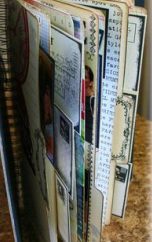
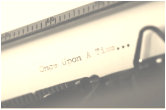
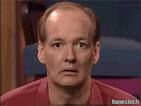
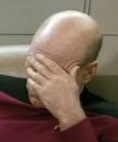
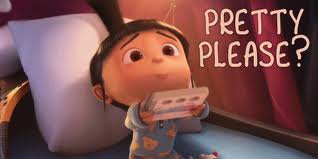
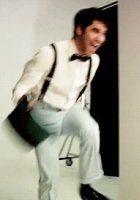
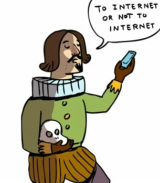
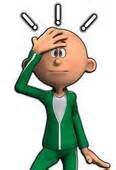
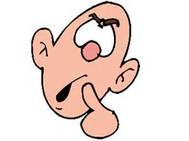
 RSS Feed
RSS Feed
